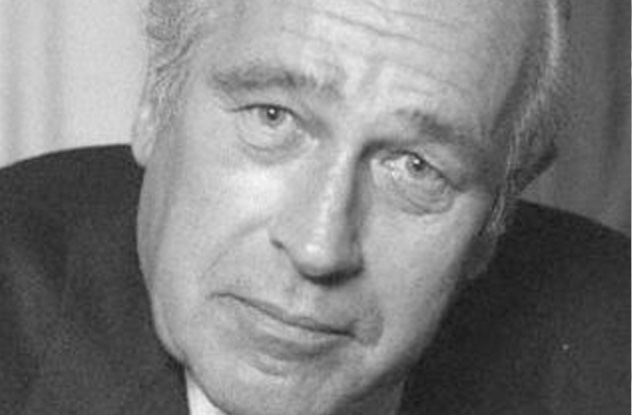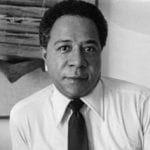 History
History  History
History  Health
Health 10 Everyday Activities That Secretly Alter Consciousness
 History
History Top 10 Historical Disasters Caused by Someone Calling in Sick
 Animals
Animals 10 New Shark Secrets That Recently Dropped
 Movies and TV
Movies and TV 10 Forgotten Realities of Early Live Television Broadcasts
 Technology
Technology 10 Stopgap Technologies That Became Industry Standards
 Weird Stuff
Weird Stuff 10 Wild Facts About Taxidermy That You Probably Didn’t Know
 Travel
Travel 10 Beautiful Travel Destinations (That Will Kill You)
 Miscellaneous
Miscellaneous 10 Modern Marriage Rituals Born from Corporate Branding
 Weird Stuff
Weird Stuff Ten Bizarre Visions of 2026 from Fiction
 History
History 10 “Modern” Problems with Surprising Historical Analogs
 Health
Health 10 Everyday Activities That Secretly Alter Consciousness
 History
History Top 10 Historical Disasters Caused by Someone Calling in Sick
Who's Behind Listverse?

Jamie Frater
Head Editor
Jamie founded Listverse due to an insatiable desire to share fascinating, obscure, and bizarre facts. He has been a guest speaker on numerous national radio and television stations and is a five time published author.
More About Us Animals
Animals 10 New Shark Secrets That Recently Dropped
 Movies and TV
Movies and TV 10 Forgotten Realities of Early Live Television Broadcasts
 Technology
Technology 10 Stopgap Technologies That Became Industry Standards
 Weird Stuff
Weird Stuff 10 Wild Facts About Taxidermy That You Probably Didn’t Know
 Travel
Travel 10 Beautiful Travel Destinations (That Will Kill You)
 Miscellaneous
Miscellaneous 10 Modern Marriage Rituals Born from Corporate Branding
 Weird Stuff
Weird Stuff Ten Bizarre Visions of 2026 from Fiction
10 Lost Works That Could Transform Their Makers’ Reputations
Name any artist, and chances are they have a whole stack of work hidden away that’s never been seen by anyone. From Stephen King to Steven Spielberg, creative types are constantly holding stuff back from the general public or even outright misplacing it.
But sometimes, artists hold back or lose work of much greater importance. These are works that could transform their reputations, works the whole world wants to see.
10Orson Welles’s Lost Film

Orson Welles’s stellar reputation rests on a handful of films he made in the ’40s and ’50s. Like Marlon Brando, the director famously spent the last decades of his life as a washed-up old drunk, no longer interested in his art.
At least, that’s the Hollywood legend. In reality, Welles spent the ’70s and ’80s working tirelessly to get new projects off the ground, including the infamous Other Side of the Wind. Shot between 1969 and 1976 and edited until Welles’s death in 1985, Wind might well be the masterpiece to top all masterpieces. The story of an old director and his young protege, the picture blurred film styles, formats, and aspect ratios to create a unique collage of a movie. Imagine Natural Born Killers done 20 years ahead of its time, or a music video made when MTV was just a meaningless collection of letters. Many Welles fans claim it could even be his greatest achievement.
Sadly for audiences, Welles died before Wind could be finished, and an ensuing battle over copyright kept it out of cinemas. However, there are now concrete plans to finally release a finished version in 2015. If it’s as good as scholars hope it is, we could yet see a complete rewriting of the myth of Welles’s wasted years.
9Harper Lee’s Second Novel

The author of To Kill a Mockingbird is considered one of America’s greatest writers, despite not having picked up her pen for decades. But Lee didn’t always want to be another J.D. Salinger. In 1964, she spoke about her desire to become “the Jane Austen of South Alabama,” a title she hoped to gain with the publication of her second book.
Known as The Long Goodbye, Lee’s follow-up to Mockingbird was already well underway in 1960. Conservative estimates claim at least 100 pages were finished, while others say over half the book was done. Then, at some point, Lee simply stopped writing. The completed chunk of Long Goodbye was locked away and never again saw the light of day. Had she finished and published it, it’s possible we might now know Lee as a masterful chronicler of small-town life, the modern equivalent of Austen or George Eliot.
8Robert Ludlum’s Literary Novel

Although he created the character of Jason Bourne and wrote some hugely popular books, Ludlum wasn’t exactly in the same league as Ernest Hemingway or John Steinbeck. That didn’t stop him from trying. By his own account, Ludlum’s very first novel was an ambitious “literary effort” written while he was still in the Marines.
According to an interview in Travel & Leisure, Ludlum’s book was an account of his South Pacific experiences. He got pretty far with it, managing to get a large part of the manuscript written up. Unfortunately for posterity (or fortunately, depending on your view), he got blind drunk when his discharge came in and lost the novel somewhere in San Francisco. By the time he felt like writing again, many years later, he was only interested in thrillers. Had the manuscript survived and been released, it’s possible that we’d have a very different view of Ludlum’s work today.
7Smith’s Third Spectrum Game

If you’ve never heard of Matthew Smith, you should know that a small contingent of retro-gamers just gave a tiny cheer. A British programmer in the 8-bit era, Smith was responsible for the Spectrum games Manic Miner and Jet Set Willy—two of the most beloved of the ’80s. When the final part of the trilogy, Megatree, was announced, expectations were high. Borrowing elements from early Nintendo platformers, Megatree would be revolutionary. Or at least it would have been, if it had ever been released.
Instead, Smith vanished off to Holland, taking Megatree with him. There, he slowly gave up working and let the project stall, eventually only completing some level designs and intros. The work he did do was never released, and Megatree quickly slipped into obscurity. It could have been the game that cemented Smith’s reputation as an innovative, superstar programmer. Instead, it simply never happened.
6Cobain’s Solo Album

More so than almost any other unreleased album, Kurt Cobain’s solo effort has reached near-mythical status. Although it’s unknown whether anything was actually recorded, that hasn’t stopped critics and casual fans alike from putting it near the top of their “most wanted” missing album lists. Understandably, too, as all signs point to Kurt’s unfinished effort being impressive.
According to former Hole guitarist Eric Erlandson, Kurt’s solo project would have been his White Album. Just like The Beatles’ magnum opus, it would have been a definitive statement of everything he wanted to say—experimental, powerful, and potentially game-changing. Others have claimed it was intended to be a low-key blues album, the sort of project that would showcase a completely different side to the troubled singer.
It’s unclear whether Kurt had started recording at the time of his death. There’s some evidence to suggest there may be several demo tapes out there, just waiting to be released. There’s also plenty of evidence to suggest Kurt never got any further than the planning stages.
5The Works Of Quintus Ennius

History hasn’t been kind to Quintus Ennius. The legacy of this writer from the second century B.C. has been eaten away by dust, rats, moths, and disasters. Today, we only have a few hundred lines left of his many poems, plays, and books. And that’s a bad thing, because Ennius wasn’t just some talentless Roman scribbler. By all accounts, he was the most talented of them all.
Aside from writing Rome’s national epic (before Virgil’s Aeneid knocked it off the top spot), Ennius was also regarded by the ancients as a spectacular playwright and the founder of Roman literature. Virgil, Ovid, and Horace all took their cues from Ennius’s work, and Cicero openly admired him. In his spare time, he wrote groundbreaking treatises on philosophy and theology and put together the first Latin elegiac couplets.
Unfortunately, most of his work didn’t survive the passage of time. If it had, his name might be as well known today as Virgil’s or Homer’s instead of a mere footnote in Latin literature classes.
4Spielberg’s Groundbreaking Game
Can a computer game make you cry? Today, the answer is likely “yes”; we’ve reached the point where our games frequently have stories as thrilling or moving as any film. But as recently as 2004, it was much more complicated. While some games had deep stories, the industry lacked the technology to make games responsive enough that characters would resonate emotionally with all players. Enter Spielberg and EA.
A couple years before the PS3 and Xbox 360 came out, the director and studio began working on an impressively ambitious game. Known as LMNO, it featured a mysterious alien called Eve. Although players would spend most of their time escaping FBI agents and solving clues, there were also meant to be moments focused solely on the relationship between Eve and the player. Choices taken in these sections would affect how Eve acted as the game progressed, hopefully creating a strong bond between player and character.
As a concept, it was groundbreaking. However, it was also nearly impossible to pull off. After four years of work, the game was sidelined in 2008 before being axed in 2009. Some in-game footage has since been released online, and the results seem bizarre and strangely moving in equal measure. LMNO could have led to Spielberg conquering another visual medium.
3Ovid’s Getic Poems

It’s hard to think how Ovid’s reputation could improve after 2,000 years. The author of Metamorphoses is today known as one of the great poets of all time. Yet it’s possible his reputation should be even higher.
Toward the end of his life, Ovid was banished from Rome by Augustus. His punishment: to live in exile at the outermost fringes of the Empire, with the savage Getic people of the Black Sea. Although he missed Rome terribly, Ovid did what any writer in his situation might do and kept writing. The work he composed wasn’t in Latin or Greek or any other learned tongue. It was in the Getic language.
By Ovid’s own account, the Getic people were so impressed with his verses that they made him a bard. His eulogies were possibly the first great works composed in their tongue and were likely phenomenal poems in their own right. Yet they vanished after his death, along with the whole Getic language and culture. Had they survived, Ovid would now be known as the supreme poet of two distinct and radically different cultures—as well as the writer who helped preserve the Getic language.
2Jesus’s Lost Quote Book

In the right time and place, a book of quotes can change history. Just look at Chairman Mao’s Little Red Book. But even the words of a man who killed millions and set China on its present course couldn’t compare to the Q Gospel.
Although strictly hypothetical, Q is believed to be a collection of Jesus’s sayings lost sometime in the first century. It’s also believed to contain quotes and ideas direct from Jesus that don’t appear anywhere else.
The idea comes from textual examination of the Gospels. A close reading indicates that Luke and Matthew frequently used identical quotes in their work. Since they wrote in Greek and Jesus spoke Aramaic, individual translations should have introduced minor differences. But no such differences exist, leading many to suggest that Luke and Matthew were copying from the same source: a book of Christ’s quotes, written by someone who was really there.
If it really exists, this Q Gospel might well contain content that got left out the Bible. Since the most off-the-cuff of Jesus’s sayings can form the basis of entire sects, a book of new quotes by the Lord Himself could transform our entire relationship with Christianity. If it really exists and someone managed to get hold of a copy, it would without exaggeration be the single biggest archaeological find in history.
1Jerry Lewis’s Holocaust Comedy
A 1972 film directed by and starring Jerry Lewis, The Day the Clown Cried featured Lewis as a clown tasked by the Nazis with leading Jewish children into gas chambers. The film is famously awful. The comedian Harry Shearer once wrote it “was like going down to Tijuana and seeing a painting on black velvet of Auschwitz.” Although only three or four people have ever seen it, rumors have spread about its tasteless use of slapstick and mawkishness.
But here’s the kicker: It might not be so bad after all. In fact, it may be kind of brilliant.
In 2013, The New Yorker’s resident film critic reported he’d seen a few clips from the movie and found them “profoundly moving.” This wasn’t a joke. Citing the information black hole Lewis was working in at the time (the full facts of the Holocaust were far from understood), the critic praised Lewis’s bravery in trying to depict practical, day-to-day life in a concentration camp, something no director had attempted before. He even found time to praise the slapstick elements, saying they foreshadowed the film’s tragic end.
Although this is just one critic, there’s evidence he’s on to something. Lewis has famously kept a copy of the film locked away since 1972 and has previously suggested it may be released someday—not something you’d expect if it was a total dud. Who knows: In a few years we may yet find ourselves reassessing Lewis as a pioneering film genius.








